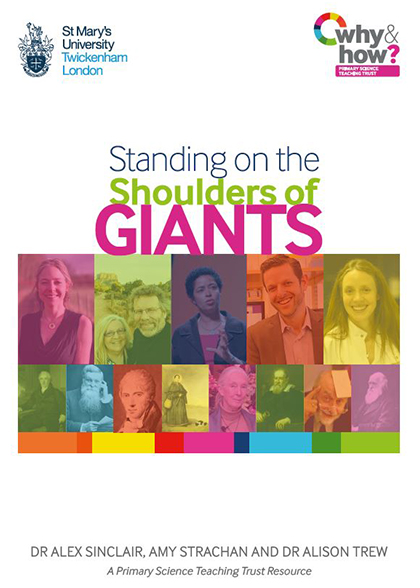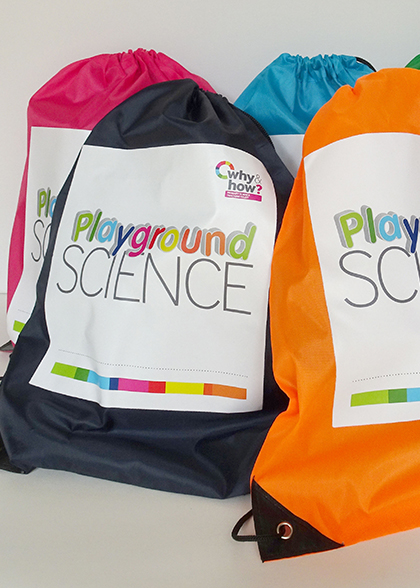British Science Week 2024
British Science Week 2024
British Science Week
At St Laurence's Catholic Primary School, we strive to develop our children's science capital. One of the main events we celebrate to support this is British Science Week, which is a 10-day programme that takes place across the UK with the aim of celebrating: science, engineering, technology and maths. This year, we celebrated British Science Week and it's theme of 'Time' with a range activities across the school.
Standing on the Shoulders of Giants
 Across the school, we used the wonderful resource, Standing on the Shoulders of Giants, which introduces historic and contemporary scientists' discoveries into the primary classroom through practical investigagtions. Linking with British Science Week's theme of time, this resource developes cross-curricular links between history and science in addition to linking the work of 10 famous historic scientists to the work of contemporary scientists, giving our children an appreciation of how wider scientific understanding develops over time.
Across the school, we used the wonderful resource, Standing on the Shoulders of Giants, which introduces historic and contemporary scientists' discoveries into the primary classroom through practical investigagtions. Linking with British Science Week's theme of time, this resource developes cross-curricular links between history and science in addition to linking the work of 10 famous historic scientists to the work of contemporary scientists, giving our children an appreciation of how wider scientific understanding develops over time.
The following year groups completed practical investigations basd on the following scientists:
Year 1 - John Dunlop - Investigating materials for tyres (link to Year 1 materials topic)
Year 2 - John McAdam - Investigating materials for roads (link to Year 2 materials topic)
Year 3 - Jane Goodall - Investigating and observing animals where they live and what they eat (link to animals inc humans topic)
Year 4 - Michael Faraday - Investigating wind turbines (link to electricity topic)
Year 5 - Spencer Silver and Arthur Fry - Investigating Post-it notes and glue (link to properties of materiasl topic)
Year 6 - Charles Darwin - Investigating evolution (link to evolution and inheritance)

Playground Science
In the run up to British Science Week, we purchased Playground Science kits so that children could explore their natural wonder and working scientifically in their own time at their own pace. Playground Science is a set of fun and informal science activities that children can carry out in their playtimes. The activities use simple instructions and a small amount of equipment to encourage the children to explore the world around them and to develop scientific skills. Children across both KS2 and KS1 used: magnifying glass, magnets, stopwatches and U.V. beads across the week to explore a range of scientific questions.
Curly Wurly Challenge
Across the school, as a fun way to think about time, while still making links to science, each year group has taken part in a timed 3 minute Curly Wurly Challenge. The objective of the challenge was to see how far they could stretch a Curly Wurly bar without it breaking in 3 minutes. Did you know the world record for this challenge is an unbelievable 4.26m
The science bit: Some materials behave differently according to their temperature. The Curly Wurly stretches better when it’s warm because its molecules are spread wider apart, increasing the material’s elasticity. When the chocolate and toffee are cold, their molecules are bonded together tightly, keeping it from stretching.
Children have been invited to do further research on this investigation at home. Why not try this Curly Wurly challenge again with a frozen Curly? Or after it’s been in the microwave for ten seconds? Is it harder or easier to do? Why not try it with a different treat?

Whole school project
During British Science Week, as a school, we took part in the British Science Week home learning poster competition across the entire school based on the theme of 'Time'.
Time might seem like a challenging topic however time is everywhere you look. Children could create a poster showing how a certain type of technology has changed over time, or even the advancement of time-telling technology itself. Budding poster makers could also go futuristic and show us how they think the world might look in years to come, or perhaps look at nature – lifecycles, lifespans, evolution and hibernation – nature is full of timely topics.
Each entrant received a bag of sweets for entering, the top 5 selected by our school council were scanned in and sent to the British Science Week team. We have also kept a copy of all the posters entered to make a whole school scrapbook to show parents and visitors.
 St Laurence's Catholic Primary School
St Laurence's Catholic Primary School

















